How to Tell If Your Cat Is Lonely (7 Signs to Look Out For)
Updated on
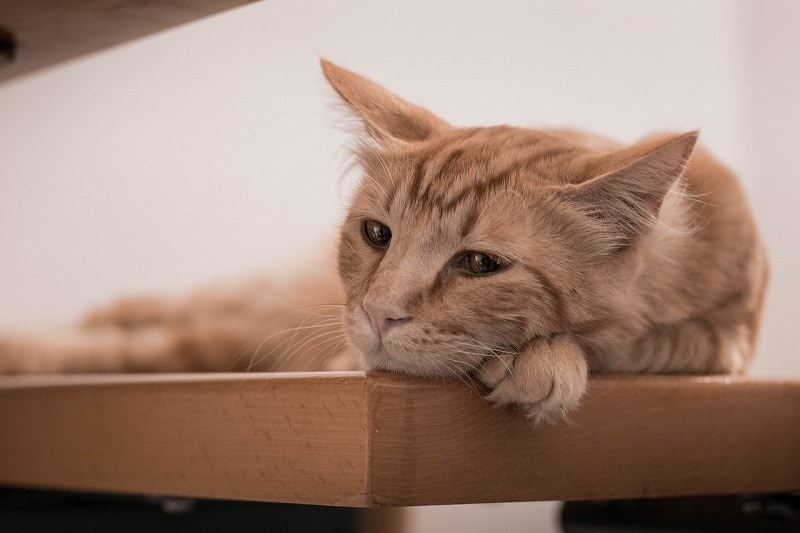
Cats are independent creatures, and they tend to spend most of their time alone, even when other people are in the house with them. However, they are never far away and seem to always know where their humans are and what they are doing. So, it is understandable to think that while cats love their owners, they don’t mind being alone.
But like humans, cats can get lonely. Not all cats do, but the longer that they are left at home alone, the greater the risk of loneliness. Here are a few signs of a lonely cat to watch out for.
The 7 Signs to Tell If Your Cat Is Lonely
1. Bathroom Accidents
Having accidents outside of the litter box can be due to several reasons. If the litter box is not being cared for as it should, your kitty might prefer to use the bathroom someplace cleaner. Certain health problems, like kidney disease and urinary tract infections, can cause cats to have bathroom accidents too. If you rule out these issues, though, your kitty could be having accidents on purpose. The behavior is induced by stress, which can be the result of loneliness. Chances are, though, that your cat will show other signs of loneliness if that’s the reason for the potty problems.
2. Increased Sleeping Habits
As nocturnal animals, cats will sleep for a long time during the day. In fact, the typical cat sleeps between 12 and 18 hours a day! Some cats sleep even longer than that, especially when they are in their senior years. However, if your cat seems to sleep all day and night, chooses not to interact with family members or engage in playtime, and/or hides away from the action when they’d normally be nearby, they could be suffering from loneliness.
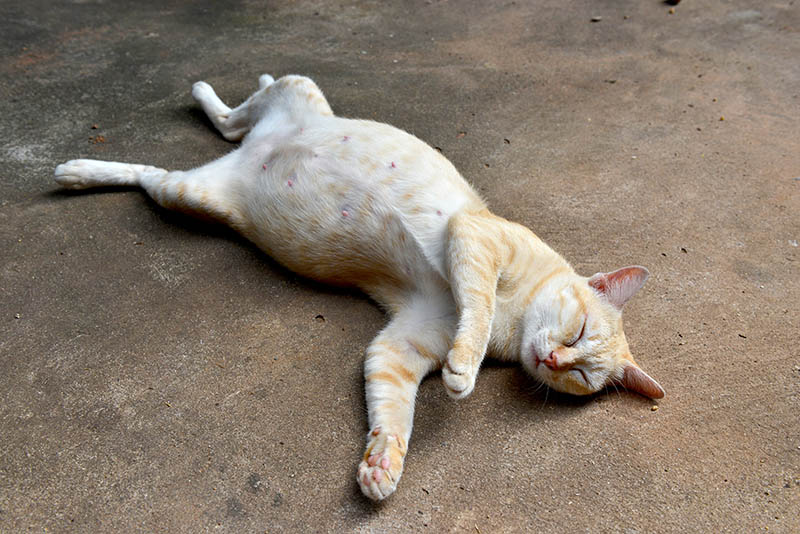
3. Sudden Aggression
When a cat gets lonely, it can lead to feelings of frustration and even depression, which could result in aggressive behavior. This can be as simple as swatting a human companion’s hand or as dangerous as scratching a child trying to play with them. Some cats even start to nip at their companions out of frustration. If your kitty suddenly starts showing signs of aggression, it could be due to feeling lonely, whether chronically or just at the time.
4. Excessive Vocal Communication
Another sign of loneliness in cats is excessive vocal communication. Cats that normally don’t “talk” might start meowing in the middle of the night. Cats that like to talk occasionally might start doing so non-stop, just to get your attention. The more attention that you offer them, the more they will talk until their loneliness issue is addressed.
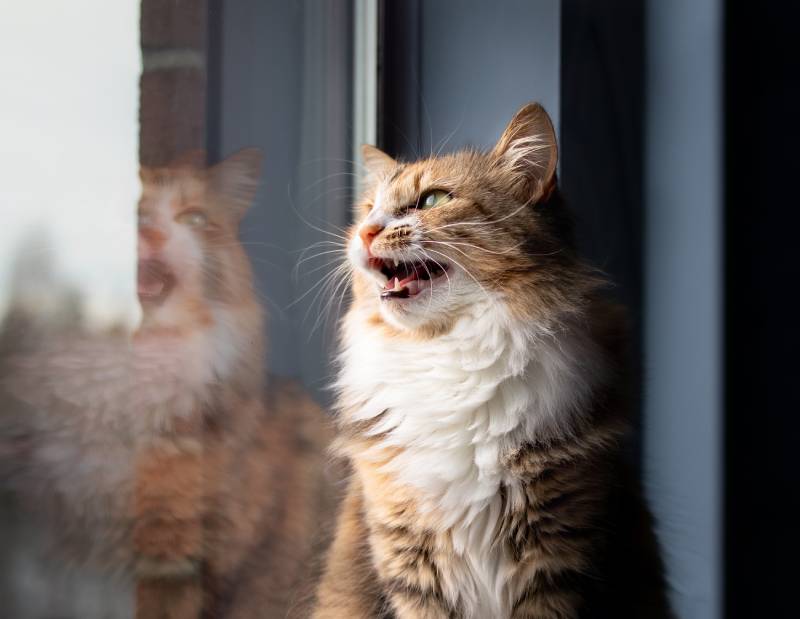
5. Household Destruction
Nobody wants to come home after a long day of work to a scratched-up couch, ruined shoes, or a chewed-up book. However, this is a risk when your cat is feeling lonely. There is no specific way that cats get destructive when they’re frustrated due to loneliness. Some will tear up a piece of carpet in the corner of a closet, while others will shred curtains to pieces.
6. Consistent Clinginess
Another way to tell that your cat might be lonely is if they are consistently clinging to you whenever you are at home. This is due to how much they miss you when you are not there to spend time with them. The longer that you’re away from home, the worse the clinginess will get as time goes on. Some cats will cling only to the person to whom they are most bonded, while others will cling to anyone who happens to be around.
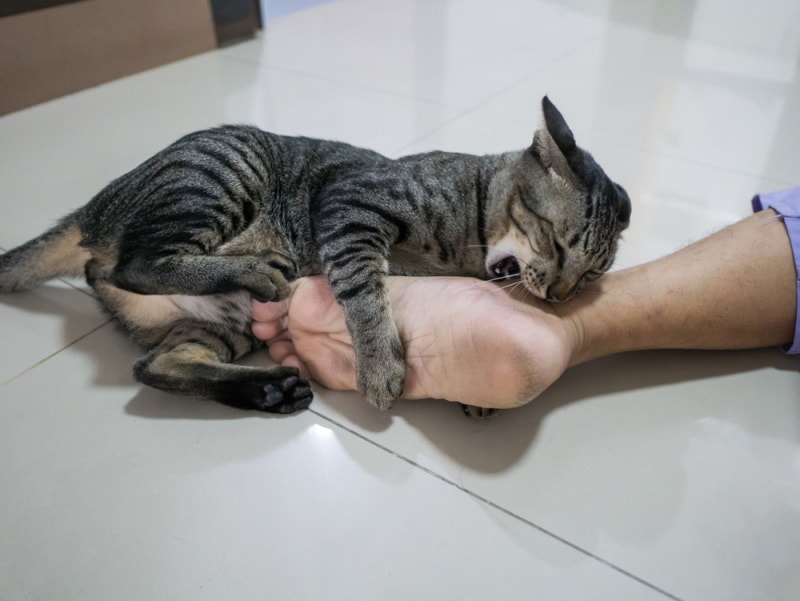
7. A Change in Grooming Habits
If your cats feel lonely, they are likely to develop depression if that loneliness is not addressed. When depression sets in, a cat may lack interest in taking care of their basic needs. They will still do the things that they need to in order to survive, like eat and drink, but they will stop many of their grooming habits. Loneliness can also result in stress, which could cause your feline to excessively groom themselves to the point of creating bald spots.
 How to Curb Your Cat’s Loneliness
How to Curb Your Cat’s Loneliness
Fortunately, your cat does not have to remain feeling lonely, even if you can’t change your work and commitment schedule throughout the week. Several things can be done to curb your kitty’s loneliness and ensure that they don’t become lonely again in the future. Here are a few options to consider.
Recruit a Sitter
If you cannot be at home with your cat for several hours at a time, consider finding someone to keep them company during that time. It could be a neighbor, an extended family member, a friend, or even a paid pet sitter. Whoever it is, they just need to hang out for about an hour and play games with your kitty so they do not feel so lonely while you’re gone.
Spend More Quality Time Together
If you’re not spending quality time with your cat every day, it could lead to a feeling of loneliness even when you’re there at home with them. Spend at least 10 minutes each day playing games and cuddling with your cat, without any other distractions around. This can be tough when you’re leading a busy life, but your cat’s health and well-being are worth the effort.
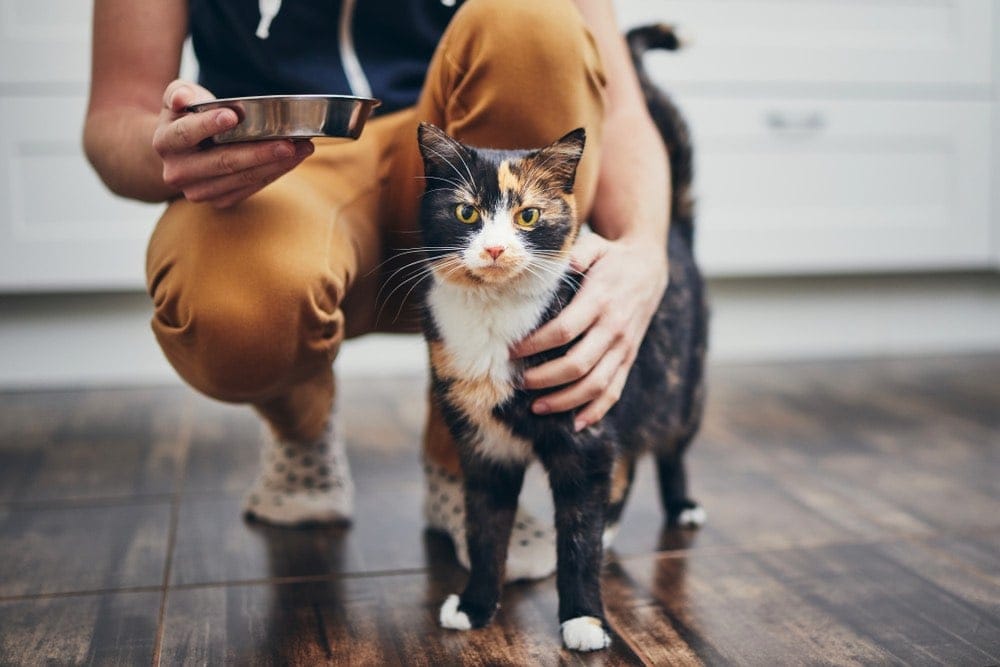
Introduce Another Cat to Your Household
A great way to curb your cat’s loneliness is to introduce a cat companion that they can spend their time with when human family members are not around. Another cat will give your current kitty someone to play and interact with, so they won’t think so much about missing you, and they will be more well-behaved and well-rounded when you are at home.
Invest in Cat Scratchers and Interactive Toys
If a second cat is not the right choice for you or even if it is, you can reduce your cat’s boredom by introducing new cat scratchers, posts, and interactive toys to their environment. Cat scratchers and posts will give your cat an outlet to release their pent-up energy, and interactive toys will keep them engaged and stimulate their minds so they won’t have time to get bored or lonely. There are options such as motorized mice, puzzle feeders, and foraging mats available.
 Final Thoughts
Final Thoughts
Yes, cats can get lonely, especially when nobody is home for several hours at a time. The good news is that loneliness doesn’t have to be a lifetime problem. Many things can be done to relieve the loneliness, even if you can’t figure out a way to be at home with your kitty more often. Hopefully, this guide will help you identify when your cat is feeling lonely and figure out what to do about it.
Featured Image Credit by: avi_acl, Pixabay

 How to Curb Your Cat’s Loneliness
How to Curb Your Cat’s Loneliness









